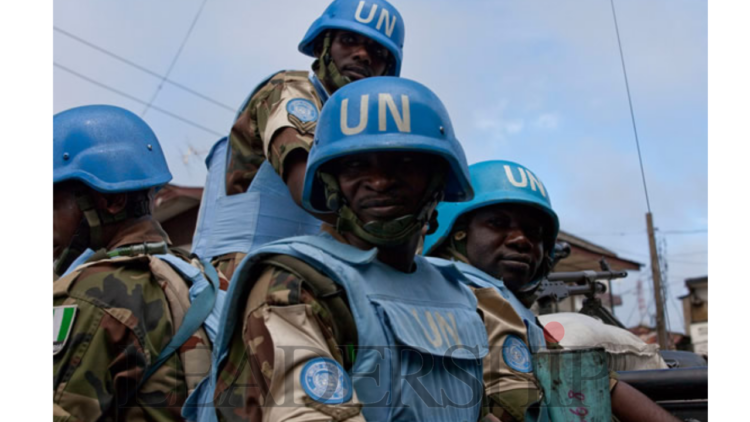By Jerry Olomolaye

The Commandant, Martin Luther Agwai International Leadership and Peace Keeping Centre (MLAILKPC) Maj.-Gen. Emmanuel Undiandeye, says governments and military must shift priority from capturing territories to protection of civilians during armed conflicts.
Undiandeye said this at the graduation of participants of the Comprehensive Protection of Civilian Course 33/2023 organised by the centre in collaboration with UNDP in Abuja.
He said that contemporary conflicts had become increasingly volatile, uncertain, complex and ambiguous.
The Commandant said that such conflicts were often internal and struggles over power and resources, social and economic inequality, or ethnic and religious divides.
“These conflicts are often asymmetric and driven by non-state actors against national forces.
“This is the nature of conflict that our dear continent of Africa is currently faced with; especially the West African sub-region.
“As in most conflicts of similar nature, civilians constitute the majority of the people impacted by the conflicts either as intented or collateral targets.
“The priority of governments and their militaries therefore must shift from the traditional objective of capturing and holding territories to the protection of civilians during armed conflicts,” he said.
Undiandeye said the efforts of the UN in raising the discussions on responsibility to protect and also developing the capacity of member states to protect civilians in armed conflicts underpinned the need for the course.
He said the traing provided the participants with the necessary background and tools to enable them function effectively in any protection of civilians tasks in conflict environments.
According to him, experience has shown that protection tasks despite their distinct nature generate significant overlap.
“This is particularly true at the tactical level, where assessment of protection threats, as well as the planning for and response to complex protection crises is likely to simultaneously involve elements from the protection of civilians, child protection and conflict related sexual violence realms.
“Therefore, in order to reflect these realities and prepare peacekeepers for the multi-dimensional realities on the ground.
“The training package aimed to demonstrate the complex linkages between protection tasks and provide training guidance on how to prevent, deter and respond to interrelated threats.
“Having successfully completed the training, you are now not only equipped with the requisite skills to be effective protection actors in conflict situations but have also qualified to organise and deliver training on comprehensive protection of civilians.
“I therefore urge you not to shy away from such responsibilities whenever the situation avails itself,” he said.
The team Lead, Governance, Peace and Security, United Nations Development Programme (UNDP), Mr Matthew Alao, urged the participants to avoid sexual violence and exploitation during deployments
Alao said there was substantial value of “Enhancing National Capacities for Counter-Violent Extremism, Anti-Piracy and Protection of civilians project” course to global peace and stability.
He said it was designed towards ensuring the protection, safety and wellbeing of civilians in armed conflicts, as well as contributions to attainment of SDGs by 2030.
According to him, having well trained military and paramilitary officers, and civilians alike on the rudiments to effectively protect civilians in armed conflict will reduce civilians casualties in war time, promote civil-military relations, improve professionalism and build trust and confidence in peace support operations.
“I therefore, encourage the beneficiaries of this course to nurture the knowledge acquired within the past two weeks and apply them in all related assignments,” he said.
In his remarks, the Japanese Ambassador to Nigeria, Kazuyoshi Matsunaga said Nigeria had a growing population and the largest market economy in Africa.
Matsunaga said that Nigeria has a bright future ahead with its abundant mineral resources and the latest IT and innovation, adding that only 51 Japanese companies were doing business in Nigeria.
According to him, Africa is often in the news for its security challenges being a dynamic and growing economy with a young and talented population.
“I am confident that the future of Africa is bright. Security problems do not happen in one country, nor can they be solved by one country.
“The significance of this training, which involves not only Nigeria but many other countries including Mali, Sierra Leone, Niger, Cameroon, Benin, Ghana, Liberia and Gambia, is not only to educate effectively but also to foster trust and bring neighbouring countries closer in their coordination efforts.
“The training that they have received here will help to improve security in Africa and make the country more attractive to investment,” he said.
He said the Government of Japan had always recognised, adding that countering terrorism and violent extremism was a global priority.
He emphasised the importance of strengthening peace by preventing conflict and addressing the root causes of conflict.

